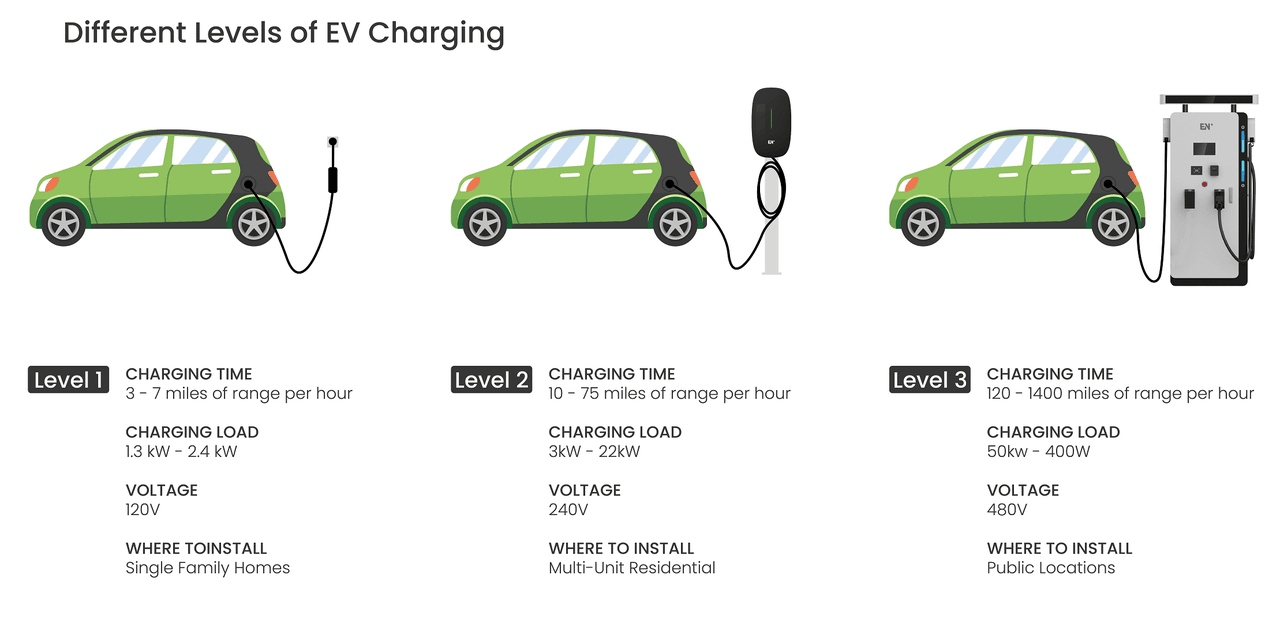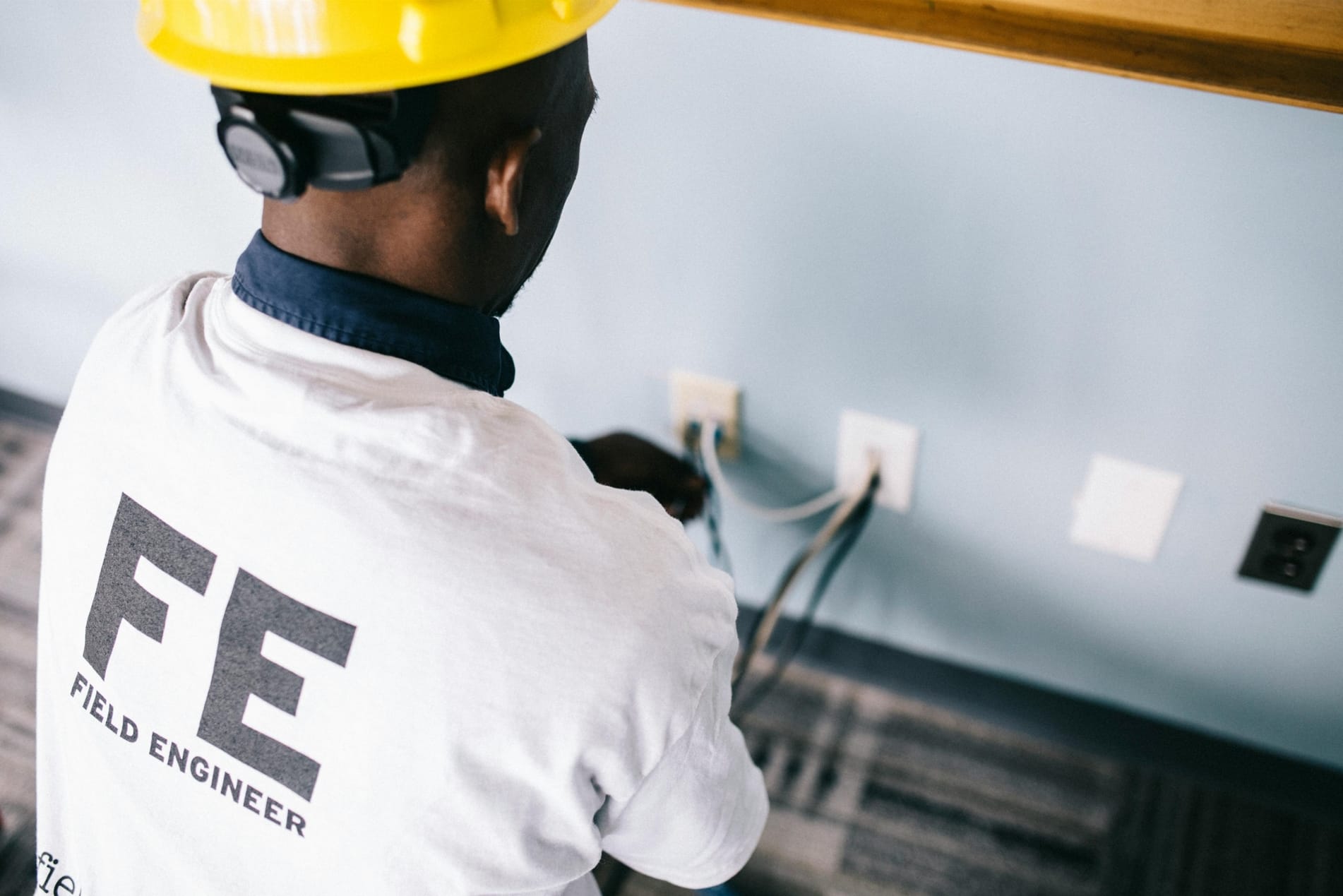When it comes to charging an electric vehicle (EV), there are different levels of charging that provide varying speeds for charging the vehicle’s battery. The most common way to categorize EV charging is by level, with Level 1 and Level 2 charging providing slower speeds, and Level 3, also known as DC fast charging, providing the fastest charging time. It’s important to understand these levels in order to effectively charge your EV. Here’s a brief overview of the three charging levels and key terms to know.
Level 1 Charging (120V)
Every EV comes with a free Level 1 charge cable that is universally compatible and can be plugged into any standard grounded 120-V outlet. The Level 1charger power rating tops out at 2.4 kW, providing up to 5 miles per hour of charge time, which equates to about 40 miles every 8 hours. This makes Level 1 charging suitable for short daily commutes of around 37 miles per day. However, many EV drivers refer to the Level 1 charge cable as an emergency or trickle charger because it is not suitable for long commutes or weekend drives. Nonetheless, Level charging is free to install and can be a convenient option for some EV drivers.
Level 2 Charging (240V)
The Level 2 charger uses 240-V outlet and is usually wired to a dedicated circuit in a garage or driveway, this type of charging station is commonly found at residential, public parking, businesses, and commercial locations. It delivers anywhere between 3.4 kW – 22 kW and can provide roughly 120km (75 miles) to your battery’s range in an hour’s charging. Level 2 chargers are faster than Level 1 and offer a range of intelligent functionalities, smart connectivity options, and safety features, making them a popular choice for home charging.
Level 3 Charging (480 V)
Level 3 chargers are the fastest EV chargers available. They typically run on 480V and aren’t typically found at home. They’re being better suited to high-traffic areas, such as highway rest stops and shopping and entertainment districts, where the vehicle can be recharged in less than an hour.
Level 3 chargers are not universally compatible and there is no industry standard. Currently, the three main types are Superchargers, SAE CCS (Combined Charging System), and CHAdeMO (a riff on “Would you like a cup of tea,” in Japanese).
There is one caveat, that high-speed charging is only available up to 80% capacity. After 80%, the BMS (battery management system) throttles the charge rate significantly to protect the battery.
Charger levels compared
Here’s a comparison of Level 1 vs. Level 2 vs. Level 3 charging stations:
Electrical output
Level 1: 1.3 kW to 2.4 kW AC current
Level 2: 3kW to under 22kW AC current
Level 3: 50kw to 400kw DC current
Range
Level 1: 4-11km (or 3-7 miles) of range per hour of charging; about 22-40 hours to fully charge a battery (40 kWh)
Level 2: 16 to 120km (10 to 75 miles) of range per hour of charging; 2-13 hours full battery charge
Level 3: 190 to 2200 km (120 to 1400 miles) of range per hour of charging; full battery charge in under an hour

Cost
Level 1: Included with the purchase of an EV, EV owners can use existing outlets.
Level 2: $200 to $1,000 per charger, plus the cost of installation.
Level 3: $5000 to $50,000 per charger, plus a hefty installation fee.
Use cases
Level 1: Home or backup
Level 2: It can be utilized for residential and commercial purposes, including retail spaces, multi-family complexes, and public parking lots.
Level 3: Commercial (Fleets, Car dealerships, highway services, logistics hubs, distribution centers)
The usage and cost of the three charger levels vary significantly. It is important to note that faster and more advanced chargers come with higher installation and maintenance expenses.
Conclusion
EN Plus can provide the above three types of ev chargers for you to choose from. When choosing a charger, consider your vehicle’s capabilities, your daily driving distance, and the availability of charging stations in your area. If you mostly drive short distances and can charge overnight, a Level 1 or Level 2 charger might be sufficient. If you frequently take long trips or don’t have much time to charge, a Level 3 charger could be more suitable.








